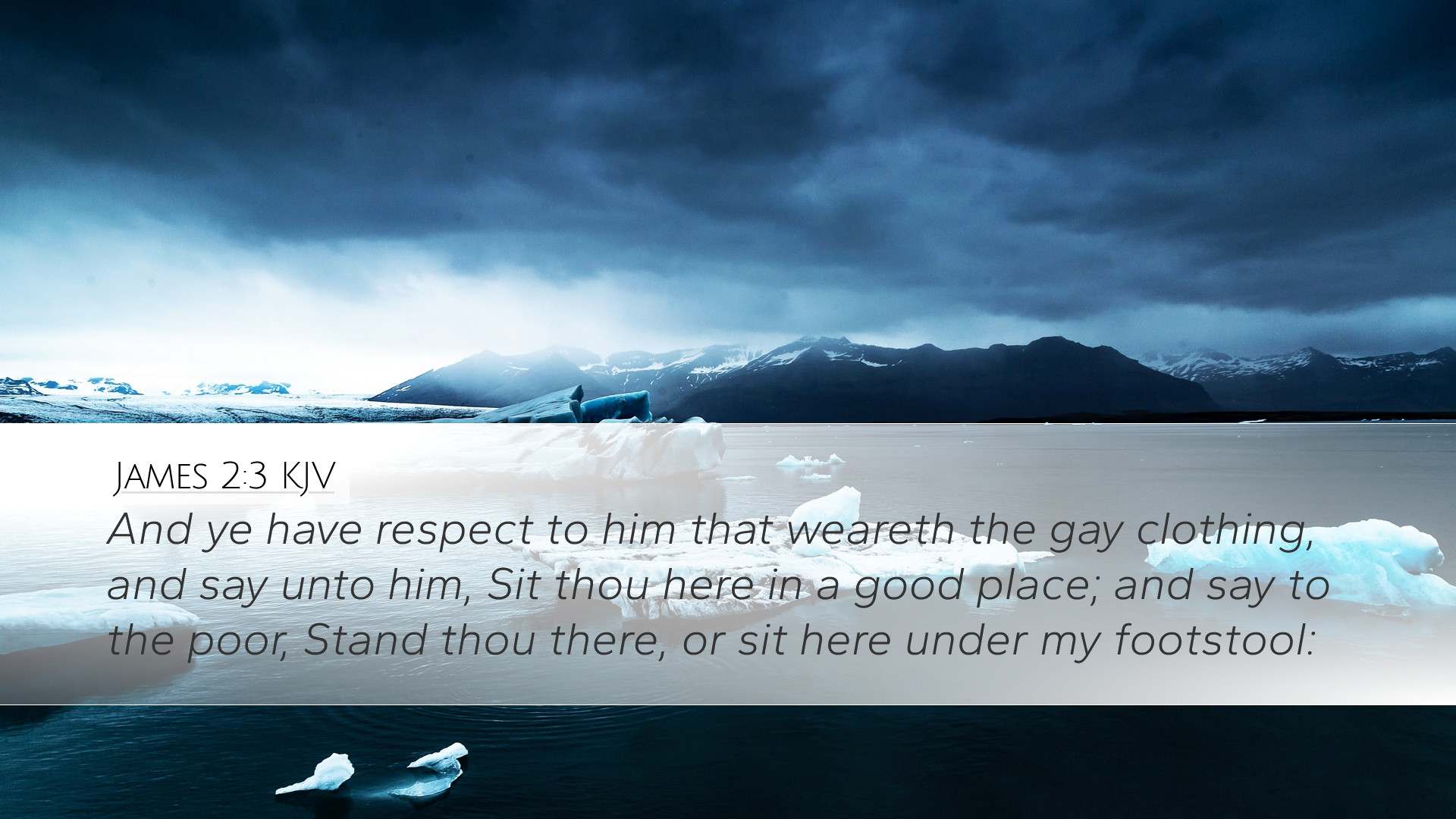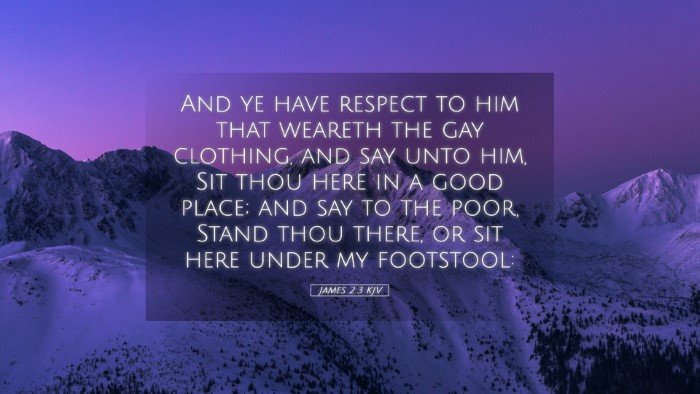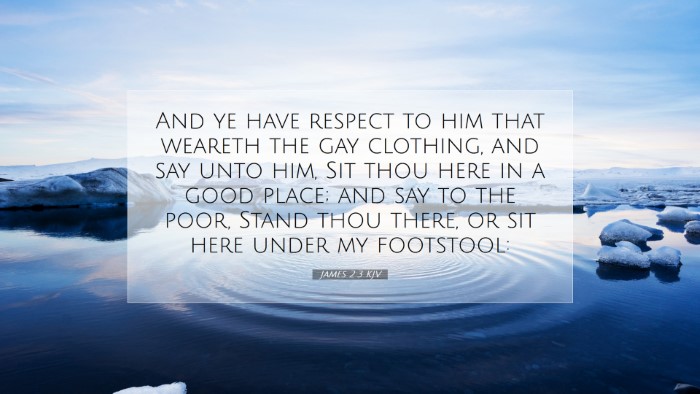Old Testament
Genesis Exodus Leviticus Numbers Deuteronomy Joshua Judges Ruth 1 Samuel 2 Samuel 1 Kings 2 Kings 1 Chronicles 2 Chronicles Ezra Nehemiah Esther Job Psalms Proverbs Ecclesiastes Song of Solomon Isaiah Jeremiah Lamentations Ezekiel Daniel Hosea Joel Amos Obadiah Jonah Micah Nahum Habakkuk Zephaniah Haggai Zechariah MalachiJames 2:3
James 2:3 KJV
And ye have respect to him that weareth the gay clothing, and say unto him, Sit thou here in a good place; and say to the poor, Stand thou there, or sit here under my footstool:
James 2:3 Bible Commentary
Commentary on James 2:3
The epistle of James is addressed to believers navigating the complexities of faith in action. In James 2:3, the apostle addresses the sin of partiality, emphasizing the importance of equality and justice within the community of faith. This commentary seeks to explore the depths of this verse drawn from insights of esteemed theologians including Matthew Henry, Albert Barnes, and Adam Clarke.
Verse Context
"And you pay attention to the one wearing the fine clothes and say to him, 'You sit here in a good place,' and say to the poor man, 'You stand there,' or 'Sit here at my footstool.'" (James 2:3)
Understanding Partiality
In this verse, James condemns the practice of favoritism based on outward appearances. Matthew Henry notes that this behavior reflects a distorted value system, one that equates wealth and status with worth. He argues that such judgment is inconsistent with the nature of Christ and the gospel's call to humility and equality among believers.
Albert Barnes elaborates on this, suggesting that the apostles recognized societal tendencies that favored the wealthy over the poor. He asserts that this inclination undermines the Christian principles of love and charity, emphasizing that believers must avoid promoting individuals based merely on their material standing.
Adam Clarke draws attention to the practical application of this teaching within church gatherings. He argues that treating individuals differently based solely on their appearance demonstrates a superficial understanding of God's grace. Believers, he maintains, must embody the values of the Kingdom, wherein all are equal, regardless of their socioeconomic status.
Theological Implications
This verse poses a significant challenge to the church's witness in the world. By engaging in partiality, Christians fail to represent the inclusive nature of the gospel. Matthew Henry contemplates that the church should instead be a refuge for the marginalized, where all members are valued and welcomed equally.
- Grace Over Favoritism: The central theme of grace is highlighted here, wherein God's favor is not based on merit. James calls believers to reflect this grace in their interactions.
- Community Dynamics: The implications of favoritism highlight the need for harmonious community dynamics. Adam Clarke emphasizes the importance of erring on the side of compassion and empathy.
- Witness to the World: Albert Barnes asserts that how believers treat one another, especially regarding societal status, is a testimony of their faith to the outside world.
Practical Applications
As contemporary readers of this text, it is vital to confront personal biases and cultural norms that may influence our judgments of others. Here are several practical applications based on the insights of these commentaries:
- Encourage Inclusivity: Actively seek to include all individuals, regardless of their social or economic status, in church activities and community service.
- Challenge Stereotypes: Work against the inclination to judge individuals by their appearances or possessions, understanding that every person bears the image of God.
- Promote Equal Treatment: Engage in discussions and actions that promote equality and justice within your congregations, ensuring that everyone feels valued and heard.
Conclusion
James 2:3 serves as a profound reminder of the Christian call to reject partiality and embrace a radical inclusivity that reflects the character of Christ. Insights from Matthew Henry, Albert Barnes, and Adam Clarke enrich our understanding of this verse, urging believers to uphold the values of the Kingdom in a world too often defined by division and inequality. As faithful advocates of the gospel, may we strive to create communities that mirror God's love and grace, extending the invitation of the Kingdom to all, irrespective of their status in the world.


